Category: Google
You are viewing all posts from this category, beginning with the most recent.
Pixel 9a might be delayed…
😬 The Pixel 9a was supposed to go on pre-order today, but Google delayed it until next month due to a 'component quality issue' affecting a 'small number' of devices.
Let's hope whatever issue they found is fixed before release!
Full statement👇
🔗 https://www.androidauthority.com/pixel-9a-component-quality-3536680/
Google Pixel 9a: Initial Impressions and a Look at the Affordable Flagship
Damien from 9to5Google recently shared his initial impressions of the upcoming Google Pixel 9a in a YouTube video. His experience seems to confirm what many have anticipated: the Pixel 9a is shaping up to be another compelling, value-driven offering in Google’s smartphone lineup.
The Pixel A-series has a history of disrupting the market, going back to the Pixel 3a. These devices manage to pack the same impressive software features found in their flagship counterparts, like the Pixel 9, while making strategic hardware compromises to achieve a more accessible price point. From what we can gather, the Pixel 9a continues this tradition.
One of the standout features mentioned is the impressive 5,100 mAh battery, which would be the largest battery ever included in a Pixel phone. This alone suggests a significant improvement in battery life, addressing a common concern for many smartphone users.
Here’s the full spec sheet:
- Biggest battery in a Pixel (5100mAh)
- 6.3" FHD OLED display @ 120Hz
- Tensor G4 processor
- 8 GB RAM + 128/256GB storage
- 7 years of software updates
- Starts @ $499 USD
While I don’t have the phone with me, thus the reason I can’t pass any full judgement, but looking at previous A-series models and information from the Google Store website suggests that the Pixel 9a might feature slightly smaller camera sensors and potentially less RAM compared to the flagship Pixel 9. However, these are often calculated trade-offs that still deliver excellent performance and a fantastic camera experience, which the Pixel line is known for.
Personally, I’m looking forward to getting my hands on the Porcelain color variant and will be sharing my initial review soon. I also plan to follow up with an end-of-year review to provide a more comprehensive assessment after extended use.
As the sixth iteration in the Pixel A-series, the Pixel 9a further solidifies Google’s commitment to the smartphone market. For those who have doubted their staying power, the continued release of compelling devices like the Pixel 9a speaks volumes. Google’s Pixel is indeed here to stay.
You can watch Damien’s initial impression video here: Google Pixel 9a Hands-On: First Look!
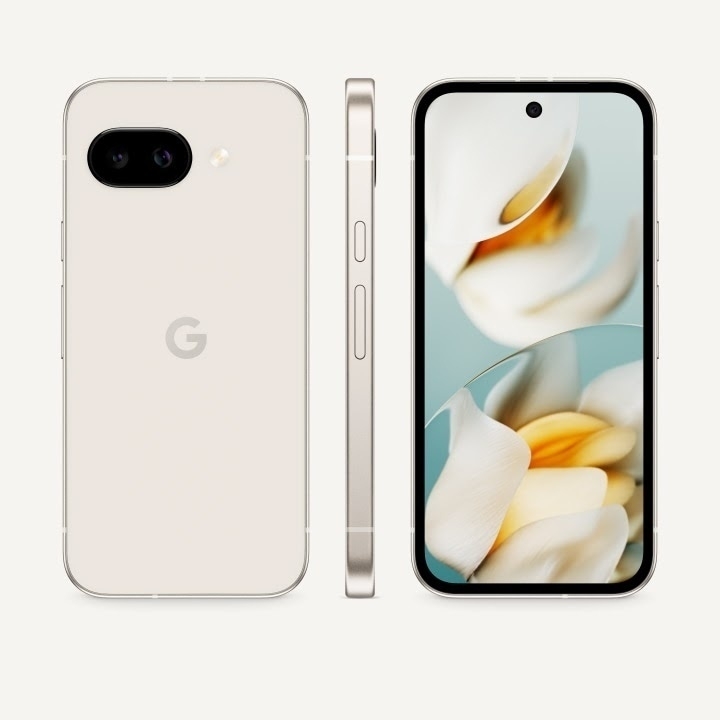
Yesterday I covered Mishaal’s decoding of Google’s Linux Terminal for Android. Basically it’s ChromeOS All Over Again (and That’s Great!)
Also, is Qualcomm going to share some love for Chromebooks?
Google's "Daily Listen": Your Discover Feed, Now in Audio
Google’s “Daily Listen”: Your Discover Feed, Now in Audio
Google is constantly experimenting with ways to make information more accessible and digestible. The latest foray into this arena comes in the form of “Daily Listen,” an experimental feature tucked away in Google Discover within Google’s Search Labs. Imagine transforming your personalized Discover feed into a short, easily consumable audio podcast – that’s the core concept behind Daily Listen.
Here’s a quick breakdown of “What it is”, “How it works”, and “How Pixel customers can use it”:
* What it is:
* It’s an AI-powered audio experience that provides a brief, roughly five-minute summary of the topics you’re interested in, based directly on your Google Discover feed. Think of it as a personalized news bulletin curated by your own browsing habits.
* Essentially, it’s an audio version of your Discover feed, perfect for catching up on the go, during your commute, or while multitasking. I’ve personally found that these small, bite-sized, consumable podcasts are incredibly useful. Services like “Daily Listen” fulfill that niche of providing just enough information without the fluff that often bogs down longer-form content. Look at the success of podcasts like TechMeme Ride Home and even the long-running “MacOS Ken” - concise, informative briefings are a real win.
* How it works:
* It uses AI to gather and summarize content from your Discover feed, creating a personalized podcast episode. The magic goes deeper than simple text-to-speech. The AI is likely leveraging techniques like:
* Natural Language Processing (NLP): To understand the core themes and key arguments within the articles in your feed.
* Summarization Algorithms: To condense longer articles into concise and digestible snippets, capturing the essence of the information.
* Topic Modeling: To identify recurring themes and group related content, ensuring the audio episode is coherent and well-structured.
* Voice Cloning or Text-to-Speech (TTS) with Style Transfer: Although not confirmed, it is possible Google is experimenting with using voice cloning to produce more natural sounding “Daily Listen” content, potentially with subtle inflections based on the tone of the original article. Another possibility is employing style transfer to adjust the TTS’s pitch and tone for a more human-like reading, instead of a robotic one.
* The content selection is based on your search history and interactions with the Discover feed. This means the algorithm considers:
* Keywords in your searches: What you’ve actively looked for provides explicit signals about your interests.
* Websites you frequently visit: If you’re a regular reader of a particular news site or blog, content from that source is more likely to appear.
* Topics you’ve engaged with in Discover: Articles you’ve clicked on, shared, or saved are strong indicators of your preferences.
* Feedback you’ve provided: Clicking “More like this” or “Less like this” on Discover cards directly influences future content recommendations.
* Technical Analysis Considerations: The back-end likely utilizes a combination of Google’s existing AI infrastructure, possibly leveraging TensorFlow or similar frameworks. The system would need to continuously monitor and update your profile of interests in real-time, re-running the summarization and aggregation algorithms each time a new Daily Listen is generated. This necessitates significant computational power and optimized algorithms to deliver the five-minute summary efficiently. Furthermore, the system would require efficient caching mechanisms to prevent redundant processing for users with relatively stable browsing habits.
* How Pixel customers can use it:
* First, users must opt-in to Search Labs within the Google app. Open the Google app, tap your profile picture, go to “Settings,” then “Search Labs,” and enable “Daily Listen.”
* Once enabled, a “Daily Listen” card will appear in the Discover feed. The appearance and frequency of this card may vary depending on the availability of relevant content and the algorithm’s confidence in its relevance to your interests.
* Tapping the card generates the personalized audio episode. The AI then springs into action, compiling and narrating the audio summary.
* The user will then have audio control functions, such as pause, rewind, and fast forward, allowing for a user-friendly and adaptable listening experience.
Daily Listen and the Potential Connection to Notebook LM:
While not explicitly stated, it’s intriguing to consider the potential relationship between Daily Listen and Google’s Notebook LM (formerly Project Tailwind). Notebook LM is Google’s AI-powered note-taking tool that summarizes, analyzes, and generates insights from uploaded documents. The core summarization technology powering Daily Listen could be a direct application, or at least a close relative, of the same AI models used in Notebook LM.
Here’s why:
* Shared Summarization Capabilities: Both Daily Listen and Notebook LM rely heavily on AI-powered summarization. The same algorithms that condense lengthy research papers in Notebook LM could be adapted to summarize news articles in Daily Listen.
* Understanding Context and Theme: Notebook LM is designed to understand the context and key themes within complex documents. This understanding is crucial for creating accurate and informative summaries, a skill directly applicable to the Daily Listen feature.
* Potential for Personalized Learning: Imagine a future where you can upload your own articles, research papers, or meeting notes to Notebook LM, then have Daily Listen create a personalized audio summary of your content. This could be a powerful tool for learning, staying organized, and retaining information.
Google’s “Daily Listen” is more than just a fun experimental feature; it represents a powerful application of AI to personalize information consumption. Still in its early stages, the underlying technology, potentially connected to advancements in tools like Notebook LM, suggests a future where AI-powered audio summaries become a commonplace way to stay informed and engaged.
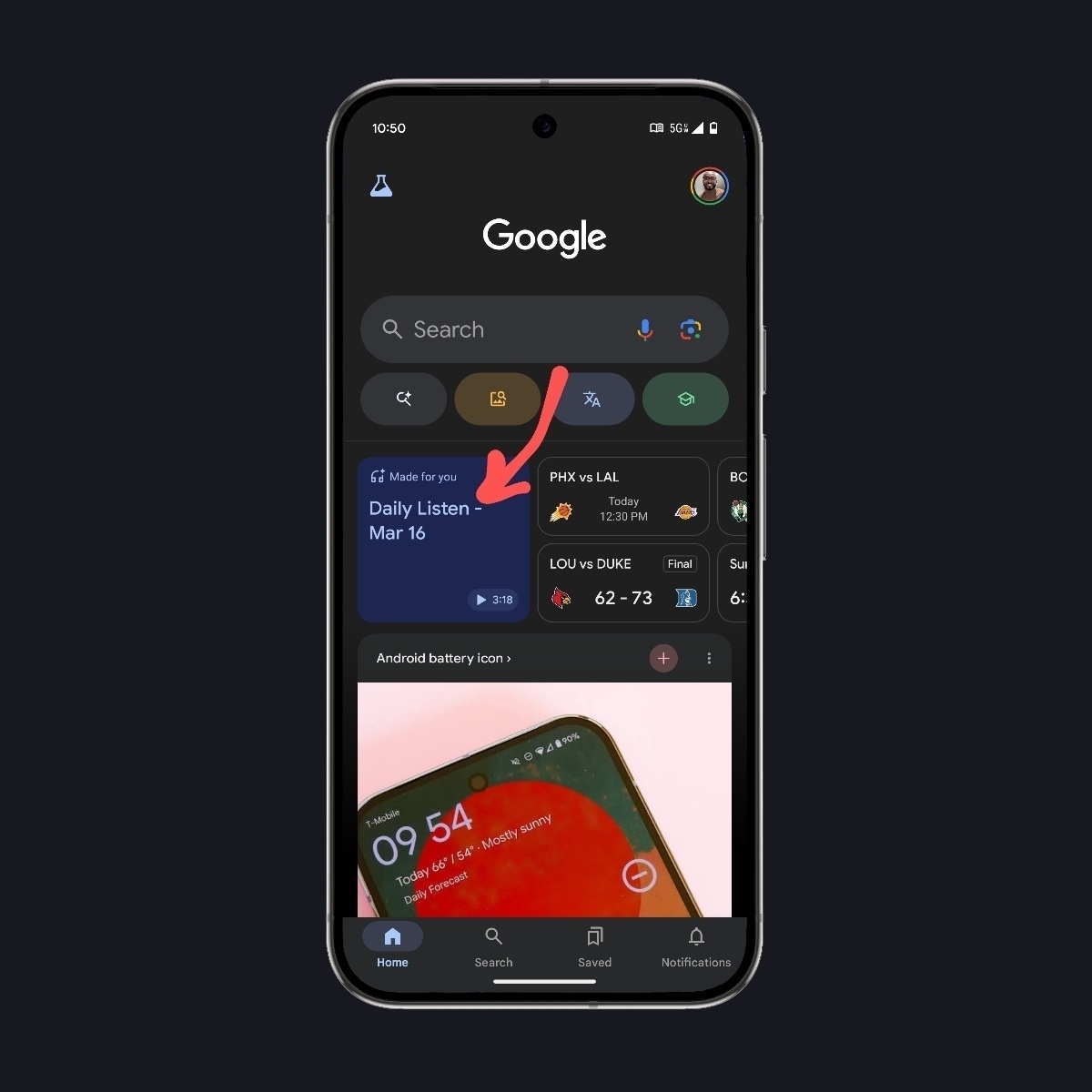
Pixel Superfans got a special access to the grand opening of the new Google Store in Santa Monica. Chief Design Officer for Consumer Devices at Google, Ivy Ross was in attendance as well as a few from the Pixel team. Check it out in my latest longform post.
Google Store Santa Monica: A Pixel Experience Opens its Door
The Google Store has opened its doors in Santa Monica, bringing a new space for innovation and the Google community. A select group of Pixel Superfans received an exclusive preview before the official opening. This special event included an opportunity to meet members of the Pixel team and Ivy Ross, Chief Design Officer for Consumer Devices at Google. The Superfans were able to explore the store’s displays and experience the devices firsthand.
“It was interesting to see the people behind the products," shared a fellow Pixel Superfan. “Meeting Ivy Ross provided insight into the Pixel’s design philosophy."
Google expressed appreciation for their Pixel Superfans, acknowledging their contribution to the Pixel’s development. A contest was also held, offering Superfans the chance to win additional Google and Pixel merchandise. The Google Store in Santa Monica aims to be a community space, offering learning opportunities and showcasing Google’s innovations featuring interactive workshops and personalized support.
Located in Santa Monica, the Google Store is open to the public. Visitors can explore the latest technology and learn more about Google’s products.
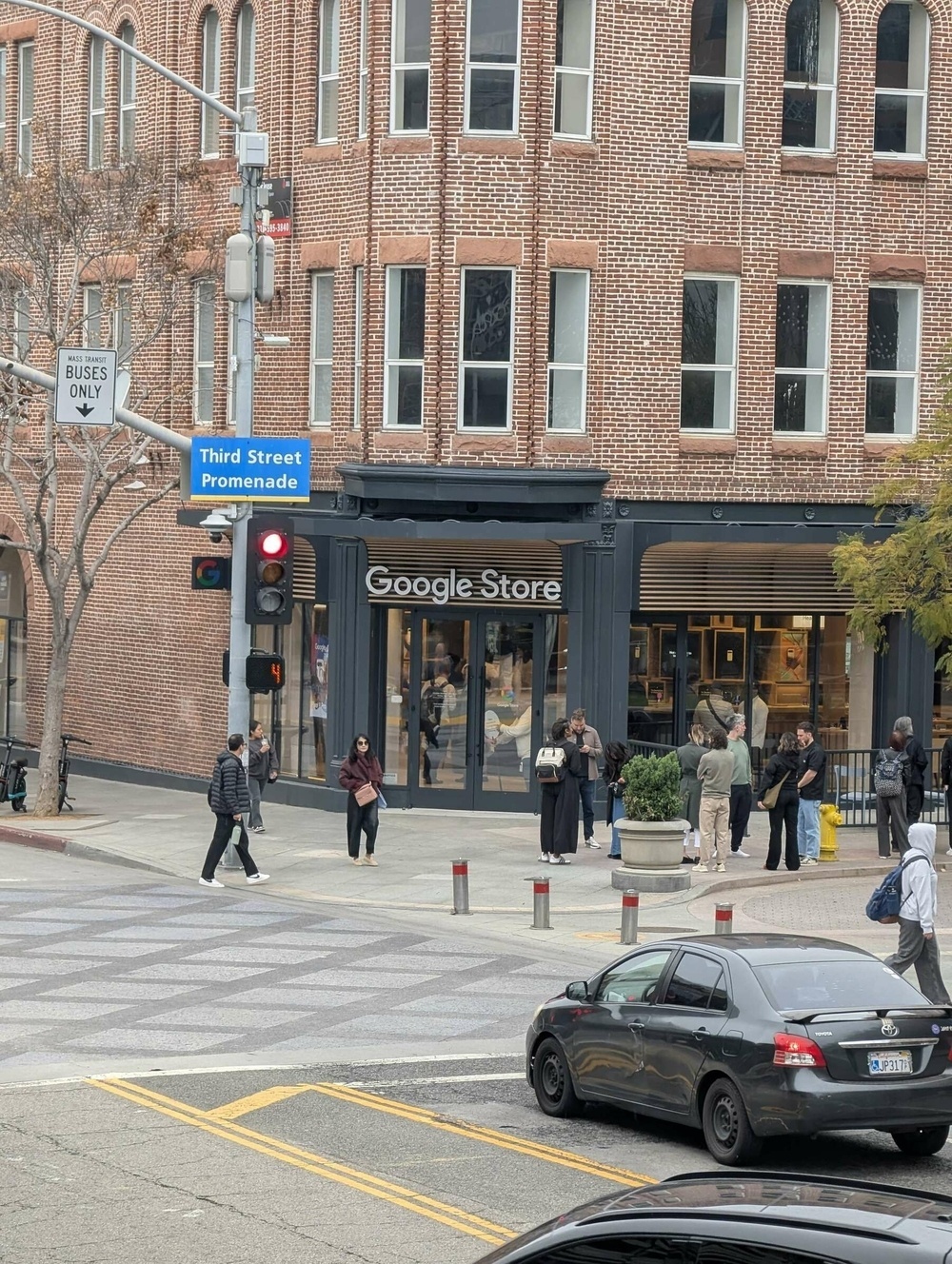
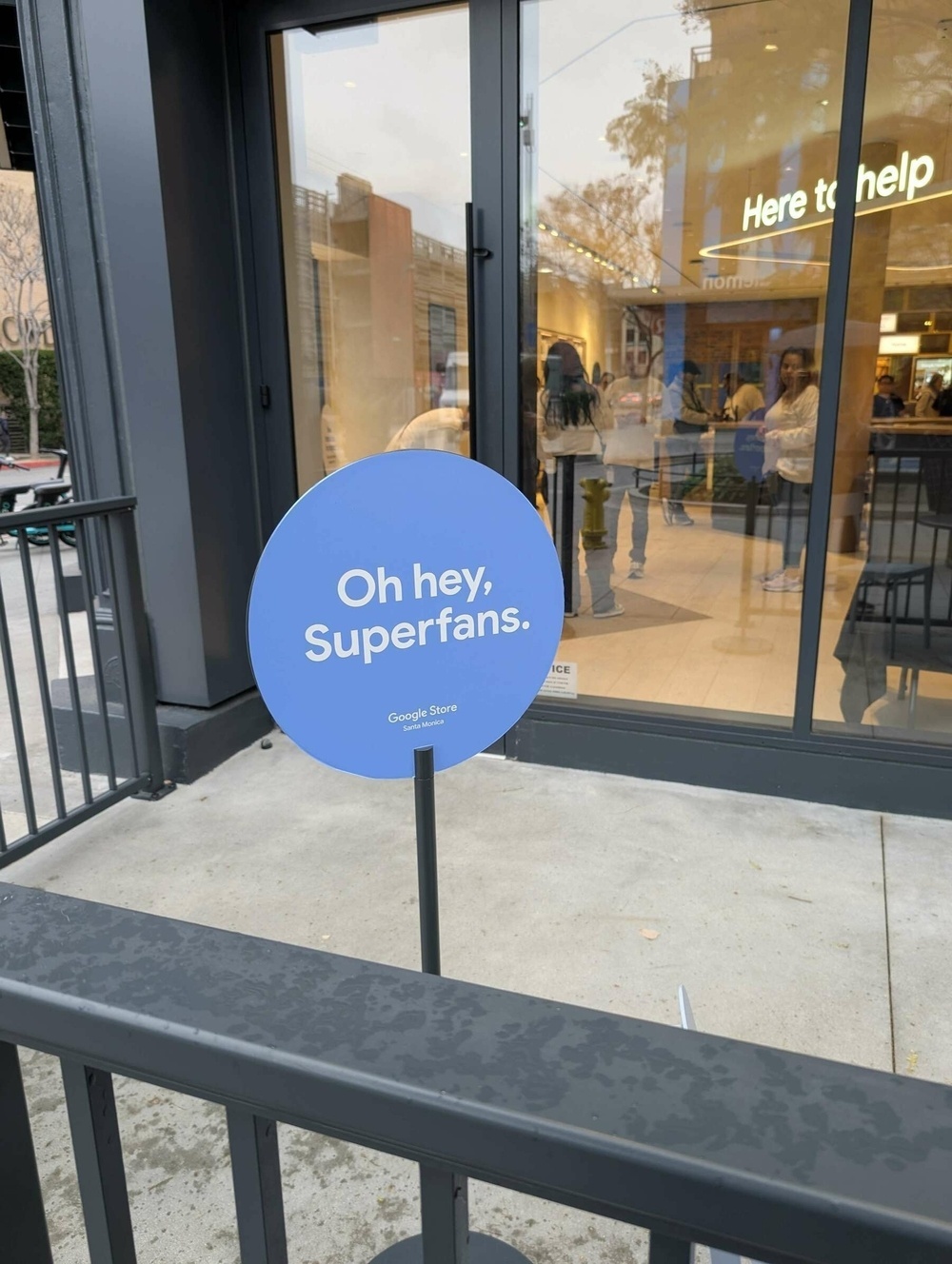
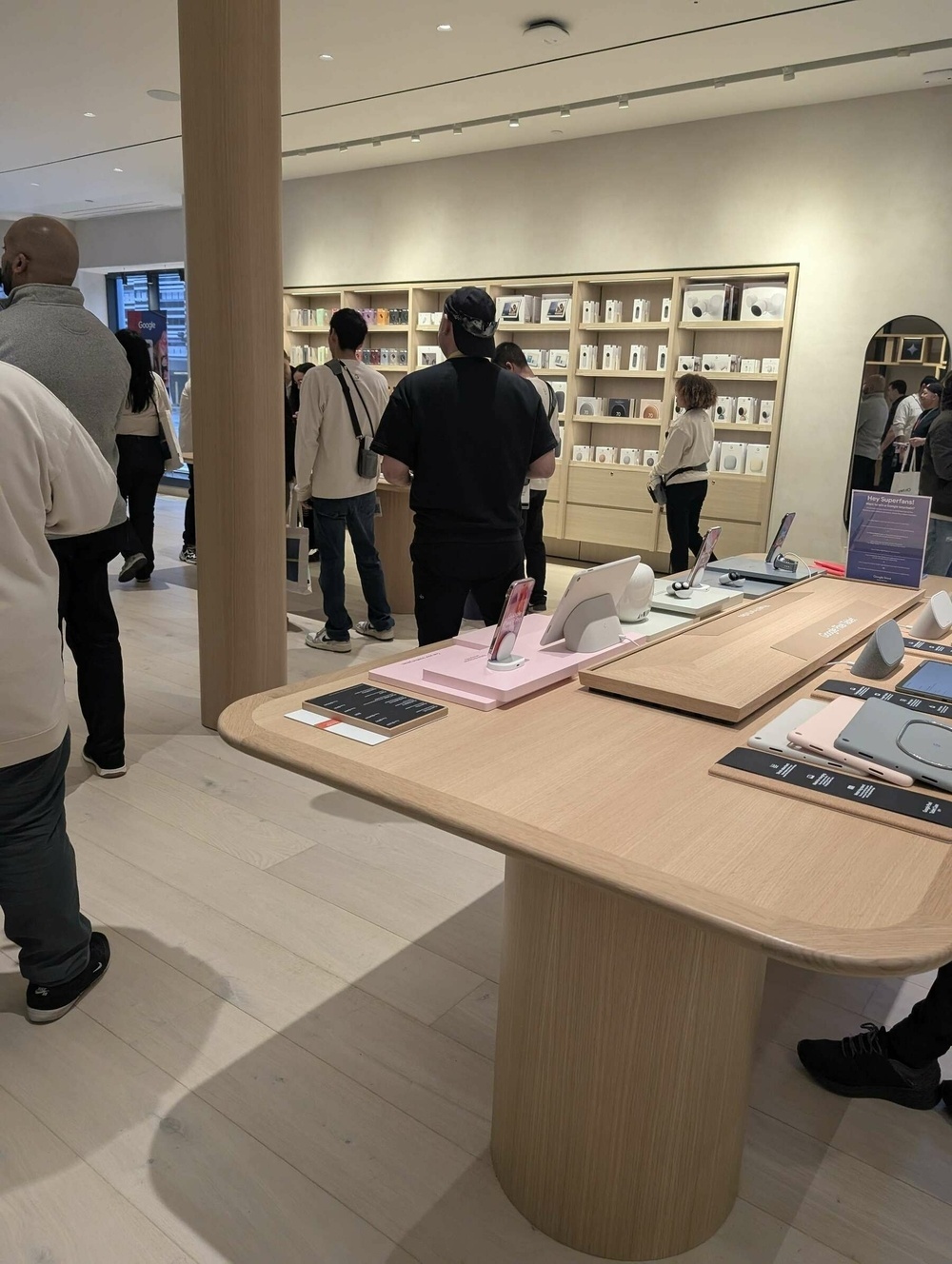
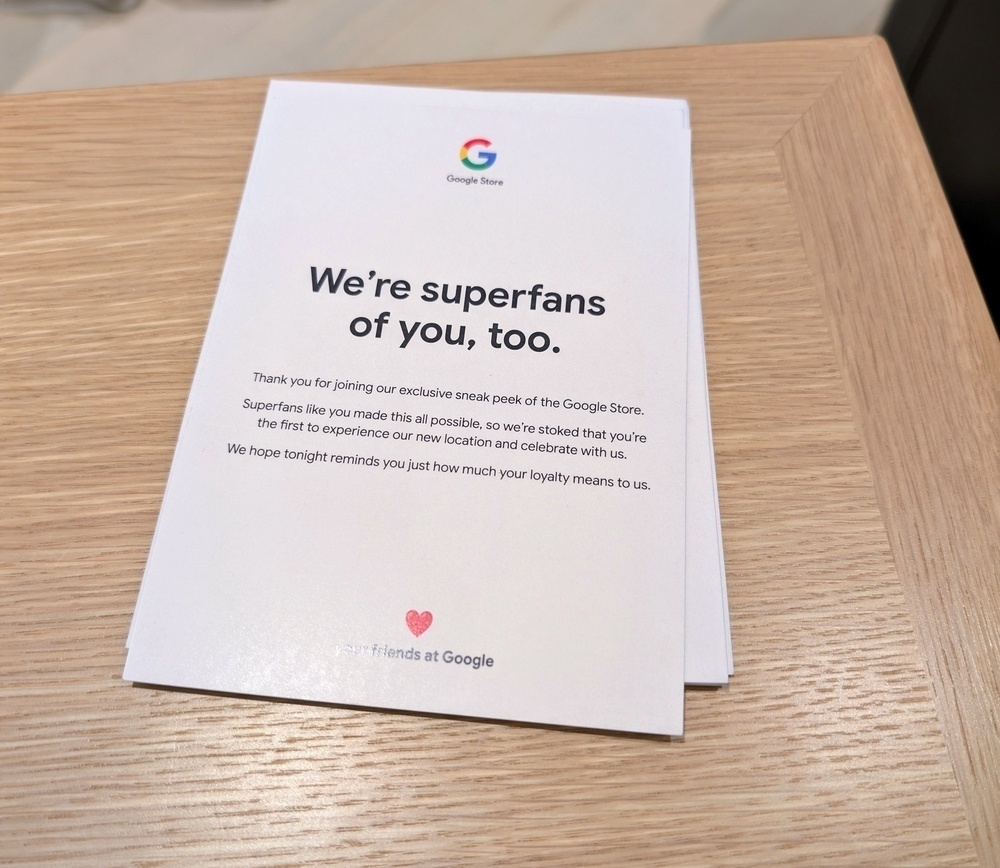
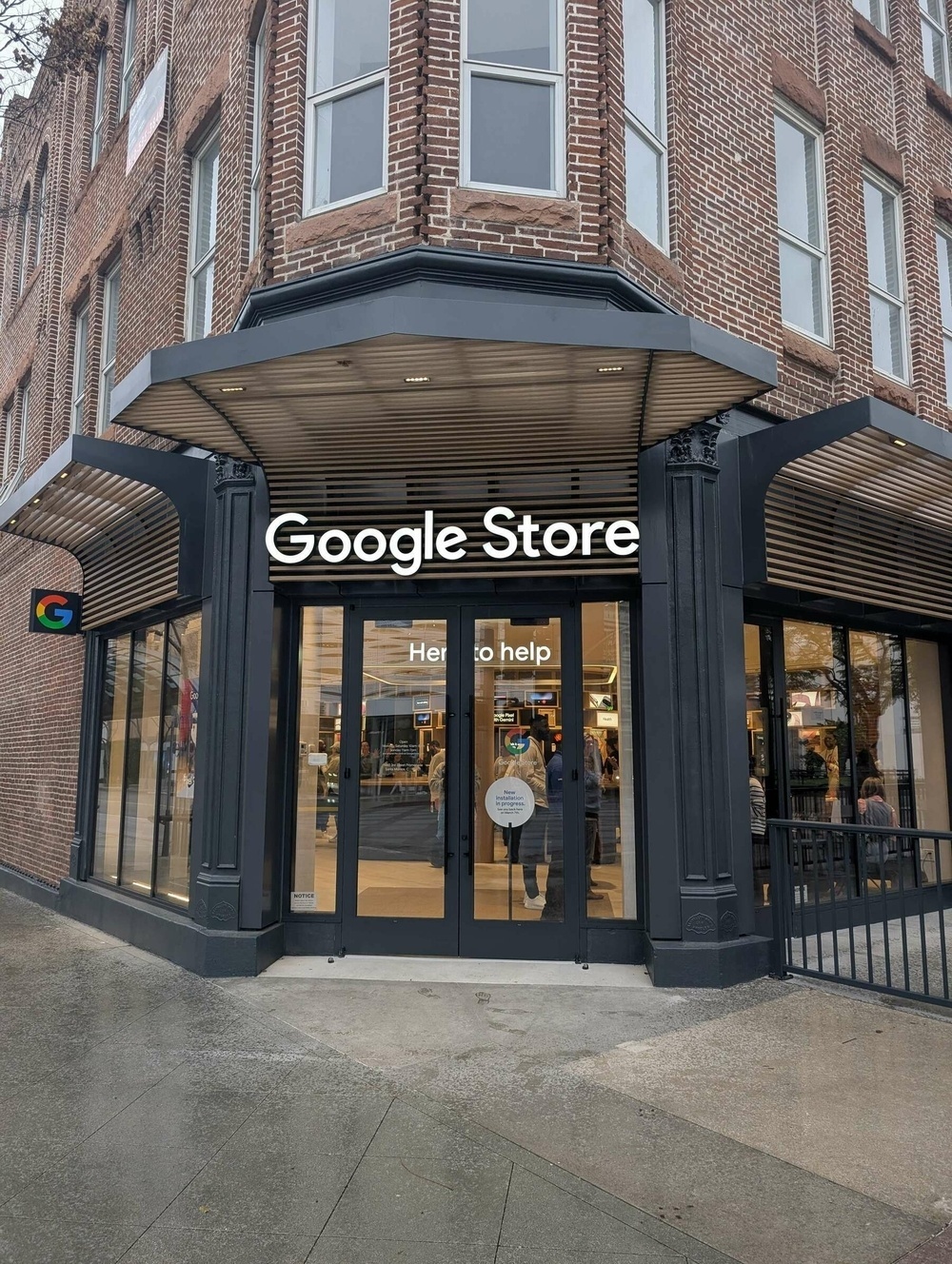
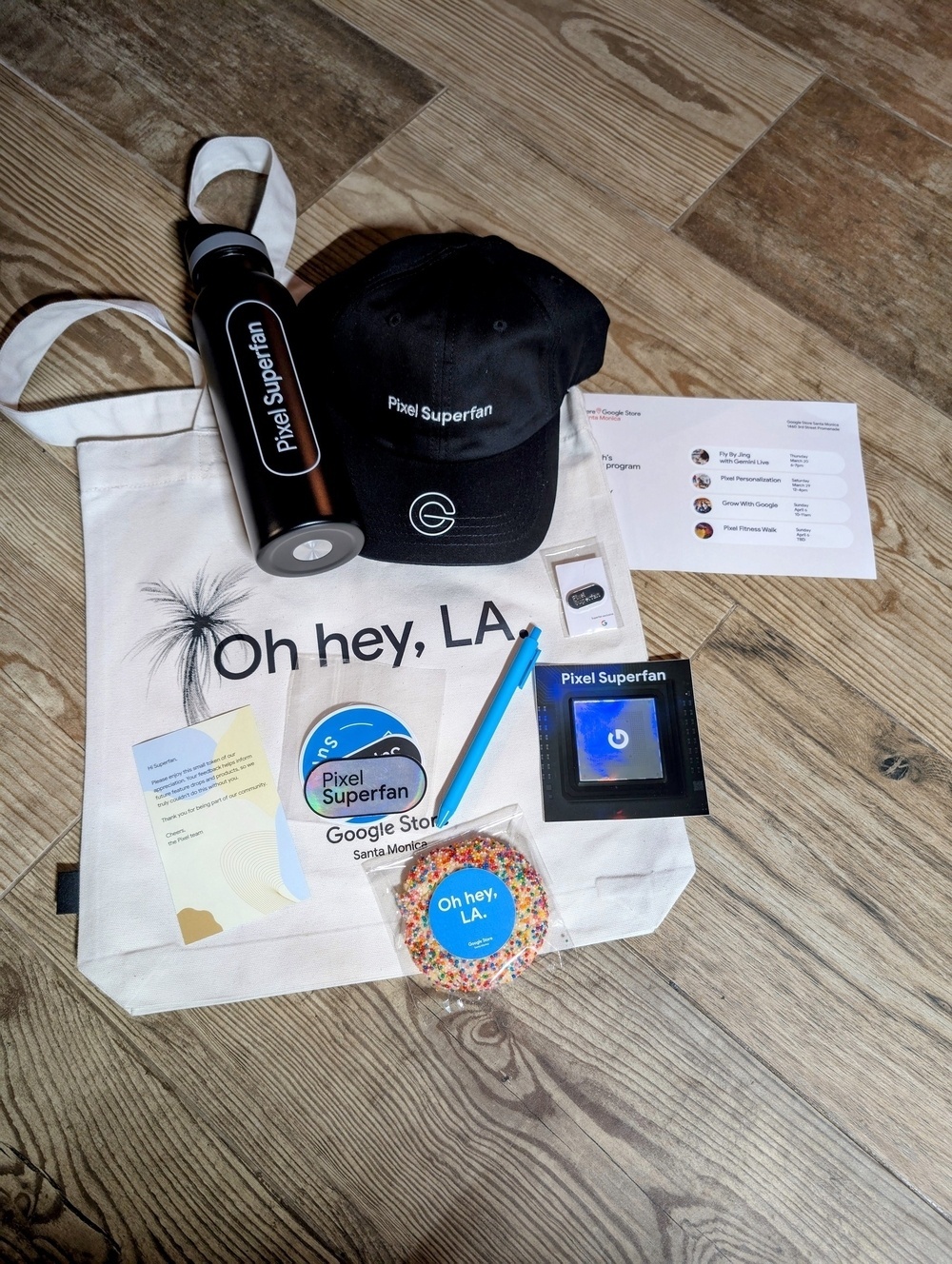
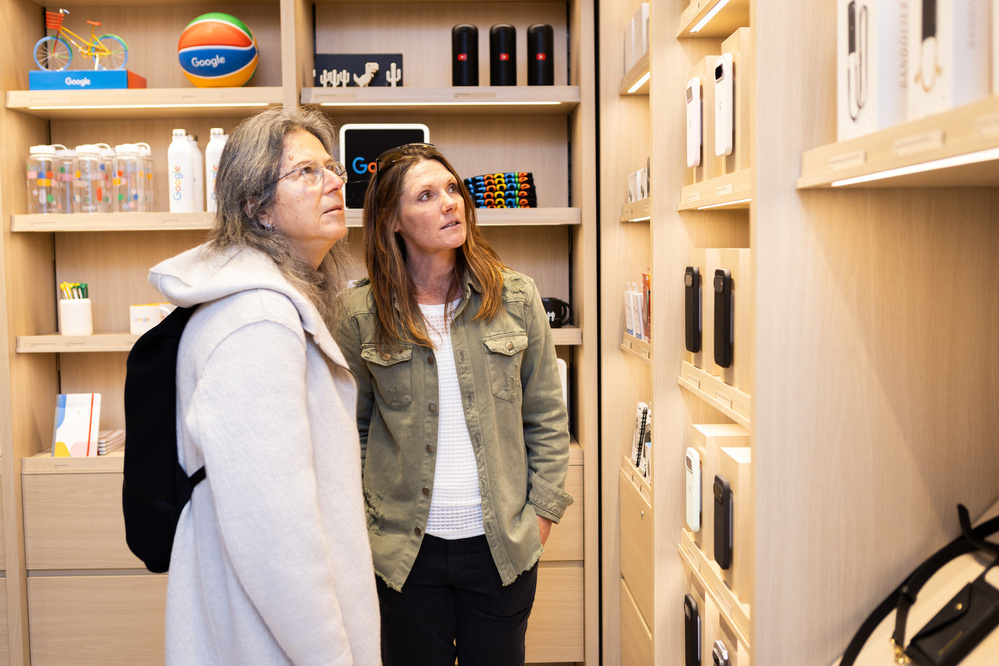
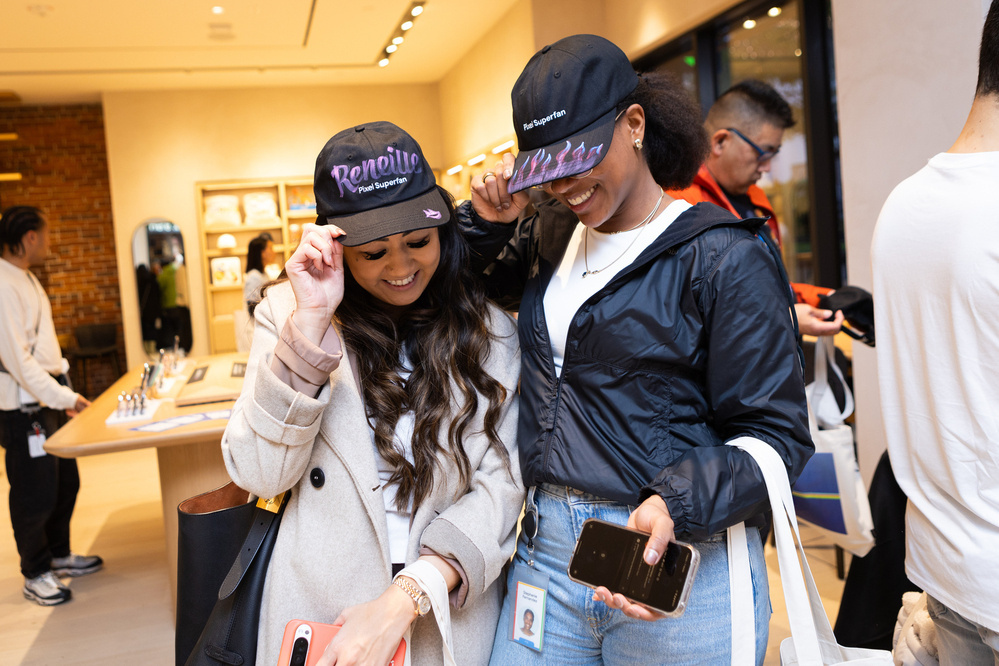

Google Please Do This At Google I/O 🙏🏾
John Gruber provides a genius script for what Google should do at Google I/O 2025:
Presenter: This is a live demo, on my Pixel 9. I need to pick my mom up at the airport and she sent me an email with her flight information. [Invokes Gemini on phone in hand…] Gemini, when is my mom’s flight landing?
Gemini: Your mom’s flight is on time, and arriving at SFO at 11:30.
Presenter: I don’t always remember to add things to my calendar, and so I love that Gemini can help me keep track of plans that I’ve made in casual conversation, like this lunch reservation my mom mentioned in a text. [Invokes Gemini…] What’s our lunch plan?
Gemini: You’re having lunch at Waterbar at 12:30.
Presenter: How long will it take us to get there from the airport?
People have been laying it on thick on Apple for their massive misstep of Apple Intelligence marketing a product that was never ready to sell another product. As John Gruber said in his blog post, Google should do a live demo of the exact thing that Apple said Siri would be able to do in front of a live audience in a live stream to truly prove that Gemini and Google Pixel are great products and a match made in tech heaven.
As John Gruber said, Apple just handed Google a potential marketing gift.
Google's Gemini Transition: A Necessary Step, But Execution is Key
Honestly, I wasn’t sure what Google’s long-term plans were for Assistant. Given their history with sunsetting projects, there was a bit of skepticism. But then came Gemini, and the shift is happening. Let’s see how it unfolds.
Google said in a blog post ‘millions’ of users have transitioned to Gemini. While this is a positive sign, the scale within the broader Android user base is something to consider. The focus on ‘most requested features’ like music and timers highlights the practical aspects of the update. The potential for ‘free-flowing, multimodal conversations’ and ‘deep research’ remains an area of interest. The introduction of features like Gemini 2.0 flash thinking and ‘Memory’ adds to the evolving capabilities of the platform. AI development is complex, and balancing innovation with timely delivery is a challenge.
The AI revolution, sparked by OpenAI, has certainly changed the landscape. While Apple has hinted at contextually intelligent assistants and fumbled so far, Google’s approach with Gemini 2.0, Android, and Gemini Nano suggests a comprehensive strategy. They have the AI capabilities, the software, and the hardware, which is a significant advantage. The timeline for execution is a point of interest. Google’s announcements at I/O, including Project Astra, initially suggested a year-end rollout. The current mid-year update indicates a delay. While delays are common in tech, timely execution is always preferred.
Ultimately, Google’s move to replace Assistant with Gemini is a necessary step in the age of AI. They have the pieces, but the execution will determine their success. If they can deliver on the promise of a truly intelligent and helpful assistant, they could redefine how we interact with our devices. But if they stumble, they risk falling behind in a rapidly evolving market. The next few months will be crucial.
Google's Grand Experiment: From Energy to Ecosystem—A 13-Year Observation
Thirteen years ago, as a GeekSquad Advanced Repair Agent, I saw Chromebooks for what they were: cheap, $200 laptops with a measly 16GB of storage. Thin clients, the IT crowd called them. I called them underwhelming. Many other’s thought the same. Back then, Google’s cloud ambitions manifested as these bare-bones machines—a far cry from the integrated ecosystems I was used to, dominated by Macs and PCs. I knew Google made Android and those software services—Search, Docs, Sheets, Slides—they were fine. But the big picture? I missed it. Google didn’t build hardware like Apple did. To me, they were just… energy. Pure potential, no form. Steve Jobs said computers are a bicycle for the mind. Google was the kinetic energy pushing the bike, not the bike itself. In this analysis, I want to trace Google’s evolution from that pure energy to a company building the bike, the road, the pedals—even the rider.
The shift in my perspective came when I grasped the consumer side of cloud computing—servers, racks, the whole ‘someone else’s computer’ spiel. Suddenly, Chromebooks started to make sense. Cost-effective, they said. All the heavy lifting on Google’s servers, they said. Naïve as I was, I hadn’t yet fully registered Google’s underlying ad-driven empire, the real reason behind the Chromebook push. That revelation led me to a stint as a regional Chromebook rep. A role masquerading as tech, but really, it was sales with a side of jargon. The training retreat? Let’s call it an indoctrination session. The ‘Moonshot Thinking’ video from Google [X]—all inspiration, no product—was the hook. Suddenly, streaming movies and collaborative docs weren’t just features, they were visions. ‘Moonshot thinking,’ I told myself, swallowing the Kool-Aid. Cloud computing, in that moment, seemed revolutionary. I even had ‘office hours’ with Docs project managers, peppering them with questions about real-time collaboration. ‘What if someone pastes the same URL?’ I asked, probably driving them nuts. But I was hooked. Cloud computing, I thought, was the future—or so they wanted me to believe.
That journey, from wide-eyed newbie to… well, slightly less wide-eyed observer, has taught me one thing: Google’s Achilles' heel is execution. They’ve got the vision, the talent, the sheer audacity—but putting it all together? That’s where they stumble. Only in the last three years have they even attempted to wrangle their disparate hardware, software, cloud, and AI efforts into a coherent whole. Too little, too late? Perhaps. Look at the Pixel team: a frantic scramble to catch up, complete with a Jobsian purge of the ‘unpassionate.' Rick Osterloh, a charming and knowledgeable figurehead, no doubt—but is he a ruthless enough leader? That’s the question. He’s managed to corral the Platform and Services division. Yet, the ecosystem still feels… scattered. The Pixel hardware, for all its promise, still reeks of a ‘side project’—a lavish, expensive, and perpetually unfinished side project. The pieces are there, scattered across the table. Can Google finally assemble the puzzle, or will they forever be a company of impressive parts, but no cohesive whole?
After over a decade of observing Google’s trajectory, certain patterns emerge. Chromebooks (bless their budget-friendly hearts), for instance, have settled comfortably into the budget lane: affordable laptops for grade schoolers and retirees. Hardly the ‘sexy’ category Apple’s M-series or those Windows CoPilot ARM machines occupy, is it? Google’s Nest, meanwhile, envisioned ambient computing years ago. Yet, Amazon’s Alexa+ seems to be delivering on that promise while Google’s vision gathers dust. And let’s talk apps: Google’s own, some of the most popular on both Android and iOS, often perform better on iOS. Yes, that’s changing—slowly. And the messaging app graveyard? Overblown, some say. I say, try herding a family group chat through Google’s ever-shifting messaging landscape. Musical chairs, indeed. But, credit where it’s due, Google Messages is finally showing some long-term commitment. Perhaps the ghosts of Hangouts and Allo are finally resting in peace.
The long view, after thirteen years of observing Google’s sprawling ambitions, reveals a complex picture: immense potential, yet a frustrating pattern of fragmented execution. They’ve built impressive pieces—the AI, the cloud, the hardware—but the promised cohesive ecosystem has remained elusive. Whispers of “Pixel Sense,” Google’s rumored answer to true AI integration, offer a glimmer of hope. (And let’s be clear, these are just rumors—I’m not grading on a curve here.) But, after years of watching disjointed efforts, I find myself cautiously optimistic about the direction Rick Osterloh (knowledgeable, and, some might say, charming) and his newly unified Platform and Services division are taking. There’s a sense that, finally, the pieces might be coming together. The vision of a seamlessly integrated Google experience—hardware, software, AI, and cloud—is tantalizingly close. Will they finally deliver? Or will Google continue to be a company of impressive tech demos and unfulfilled promises? Time will tell. But for the first time in a long time, I’m willing to entertain the possibility that Google might just pull it off.
Pixel 10 Leaks
Pixel 10 series leaks are here, brought us by @OnLeaks on behalf of Android Headlines:
The Pixel 10 series will be the first to use the new Tensor G5 which is expected to be manufactured by TSMC. Google had previously been using Samsung Foundry to manufacture their chipsets for Pixel, and it showed. Google had problems with overheating, the processor was pretty slow, and the modem was bad too. However, Google did fix the modem and mostly fixed the overheating issues with the Tensor G4 on the Pixel 9 series.
We are expecting some big gains in terms of performance on the Tensor G5, however, we also have to keep in mind that this chipset is being built specifically for the Pixel. Google is going to prefer AI performance over raw performance.
The Tensor G5 seems to be the main focus on the Pixel 10 this year. Since the external design doesn’t seem to be changing much, besides adding an additional speaker grill to the bottom of the device shown in the CAD renders, internal hardware, performance, and software could be where we get the most refinement. I’m perfectly fine with Google not changing the design this year. If the Pixel 9 is the design they’ll sit on for a couple of year (read as 3), I’m happy with that. Pixel 9 series is beautiful.
However, I had a conversation with one of my IRL friends about some nice things Google should add to the Pixel 10. I’d welcome all of them as long as it doesn’t raise the price by much. Maybe $50 would let me depart with my hard-earned money. Anything north of that, I might be holding onto my Pixel 9 Pro.